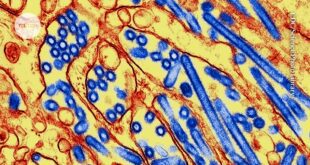10 Rules for Socially Responsible Science
Researchers must abide by ethical guidelines to prevent harm to participants. However, research can also harm individuals and social groups indirectly by shaping social perceptions and inspiring policies. Sadly, researchers receive little to no training on how to consider and minimize such harm.
Dr. Niv Reggev of Ben-Gurion University of the Negev, along with Dr. Alon Zivony of Birkbeck College at the University of London and the University of Sheffield, Dr. Rasha Kardosh of NYU, and Dr. Liadh Timmins of Swansea University, have published ten simple rules for socially responsible science that govern the whole lifecycle of a study, from planning to publication. The researchers emphasize that these rules are not prescriptive but rather meant to guide and assist interested scientists with thinking about socially responsible science.
The 10 Rules
- Get diverse perspectives early on
- Understand the limits of your design with regard to your claims
- Incorporate underlying social theory and historical events
- Be transparent about your hypothesis and analyses
- Report your results and limitations accurately and transparently
- Choose your terminology carefully
- Seek a rigorous review and editorial process
- Play an active role in ensuring correct interpretations of your results
- Address criticism from peers and the general public with respect
- When all else fails, consider submitting a correction or a self-retraction
If you are writing about a marginalized group, consider reaching out to members of that group for “insider” information as they hold perspectives crucial to your research.
Thinking about limitations in advance is always better than a limitations paragraph at the end of a flawed study.
Social context matters. Not including it can lead readers to the wrong conclusions about the phenomenon being studied.
Pre-registering the study protocols and analysis limits the risk of drawing incorrect conclusions and inspires confidence in one’s conclusions.
Try not to oversimplify your results. Sometimes science is complicated. Uploading data and analysis to an online repository allows our peers to double check the data and reproduce the experiment.
If you are coining a new term or discussing a particular group, make sure you aren’t reinforcing stereotypes. One way to avoid this is to run it by some members of the group you are researching.
Such a process is the last line of defense in keeping the scientific literature free from errors and flaws that the authors overlooked. A rigorous review process also increases the confidence of the scientific community and the general public in the results.
Work with University or journal press offices to ensure that the press release sent out is accurate and does not sensationalize the findings.
Hot button topics generate knee jerk responses as well as thoughtful criticism. Take time to review criticism and respond thoughtfully and with respect to all.
If subsequent criticism reveals a flaw, then a correction or a self-retraction might be in order. While a self-retraction is viewed as a ‘heroic’ admission of one’s mistakes, journal-retractions are perceived as a ‘guilty’ verdict.
Recently, there has been a greater call for scientists to take more responsibility for the social impact of their studies in addition to their findings. Research studies impact societal norms through how they are designed, conducted, and reported. It is crucial to acknowledge this impact and take steps to minimize harm. The set of ten simple rules proposed by Dr. Reggev and his colleagues serve as actionable guidelines for scientists interested in thinking about socially responsible science.
“When no training exists, scientific outputs can often (unknowingly) harm society. From reinforcing social stereotypes to creating a biased AI-based tool, well-meaning scientists often generate scientific studies that unwittingly lead to detrimental societal impacts. Here we proposed a theoretical framework and a set of ten actionable rules to help scientists prevent such negative societal consequences,” Dr. Reggev concluded.
 Mind Uncharted Explore. Discover. Learn.
Mind Uncharted Explore. Discover. Learn.

